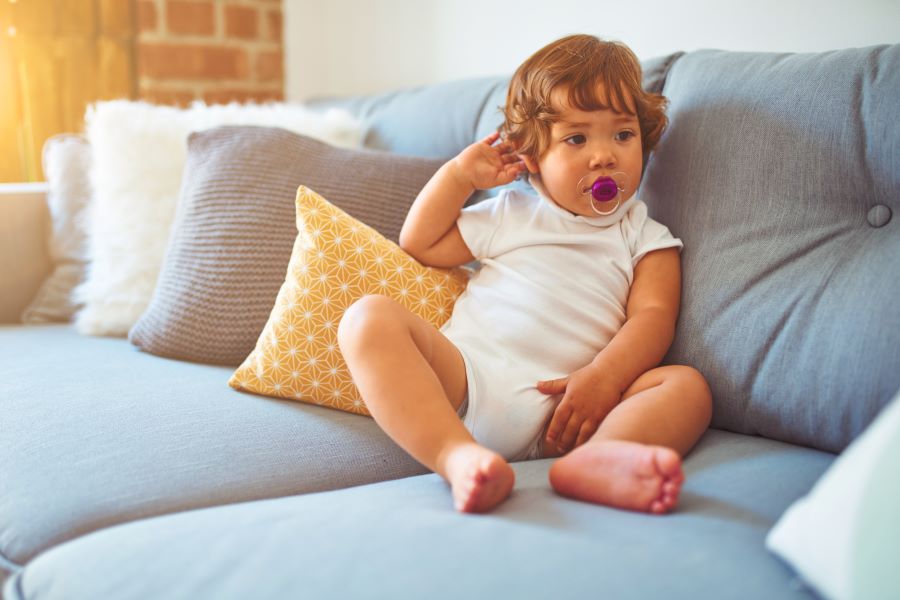How to Wean Younger Kids From a Pacifier


Some kids give up the pacifier easily, but for others it will require a little extra help from parents to make the change permanent. Some children stop as early as 12 months of age but can stop as late as 4 years old. Usually, children stop pacifier sucking before thumbsucking.
There are two basic approaches to quitting: gradual weaning and cold turkey. Some kids and parents respond better to one approach over the other.
With both approaches, the key is consistency. Don\’t start weaning on a whim; everyone who cares for your baby needs to be on board beforehand. Choose your timing wisely — the day before a long plane ride is not the best time to change your child\’s routine!
With gradual weaning, the first step is to limit pacifier use to naps and bedtime. Don\’t allow sucking at random times throughout the day and keep pacifiers out of your child\’s reach. That means gathering them from between couch cushions or inside diaper bags where they may be stashed. Put them where your child won\’t happen upon them — out of sight, out of mind.
Eventually, wean during sleep times. For most kids, it will only take two to three days — no more than a week — to get used to the new rules if parents are consistent.
Some kids don\’t respond well to gradual weaning, and some parents find it harder to manage. For them, the cold turkey approach can be helpful. Again, the key is to be consistent. If you wait until your child has cried for two hours before running out to the store to buy a new pacifier, you have essentially taught him or her that enough crying will change the rule.
How to wean from a pacifier
Replace the sucking habit with a new means of self-soothing. Help your child select a special toy to sleep with or get a new stuffed animal or doll for comfort.
Talk about this change with your child in an age-appropriate way. For younger kids, that means a brief statement that your child is a “big kid” and doesn\’t need a pacifier anymore. Remind your child to sleep with the special toy and keep your comments positive and upbeat. Treat this as a positive step and an accomplishment in your child\’s life.
Help your child use words when tired or upset. Kids who are sleepy or anxious may cry, but we can encourage them to talk about their feelings in basic, age-appropriate ways. “You’re sad” or “You’re tired” work just fine.
Praise your child frequently when goals are met. Compliment when your child sleeps all night without a pacifier or gets through a car ride without it. Give attention to the behaviors you want to encourage.
If your child really wants something to suck on, try offering water from a straw. Avoid sippy training cups with plastic spouts, which promote immature suck patterns. Straw drinking is the most like sipping from an open cup and strengthens the oral muscles used for speech.
If you feel like giving up after three hours of crying, reach out to someone who understands what you’re trying to do and will support you in it. Stand together, don’t fall apart.
Sources:
- American Academy of Pediatrics. Oral Health Initiative
American Academy of Pediatrics. Oral Health Initiative pt - 2
American Academy of Pediatrics. Oral Health Initiative pt - 3
American Speech-Language-Hearing Association. Pacifier Overuse May Harm Speech Skills, Researchers Find.
American Dental Association. Thumbsucking.
Consumer Product Safety Commission.
Powered by Bundoo®










































